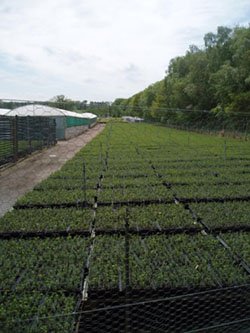Paper explores challenges faced by the nursery sector in Great Britain in an era of environmental uncertainty
 In recent years, there have been many studies exploring the management strategies that might be used to enable our forests to better cope with climate change. However, these seldom take into account the practical and economic implications of implementing these strategies, notably supply of forest plants and seed.
In recent years, there have been many studies exploring the management strategies that might be used to enable our forests to better cope with climate change. However, these seldom take into account the practical and economic implications of implementing these strategies, notably supply of forest plants and seed.
This paper reports on a study which investigated whether the forest nursery sector is well placed to deliver the right trees for our future forests. Using semi-structured interviews with practitioners involved in the plant and seed supply chain in Great Britain, it highlights a series of practical and economic bottlenecks commonly encountered in the supply of locally sourced seed and domestically produced planting stock for native woodland and hedging markets.
It finds the lack of long-term market predictability brought about by the current configuration of forestry grants and regulations, particularly the administrative systems for processing grants, to be a major impediment to having a sustainable supply of home-grown and climate adapted planting stock. The majority of trees are therefore grown speculatively, with shortages being overcome by importing from abroad.
The researchers conclude that a more stable grant system, that acknowledges the imperative for long term planning, is urgently needed. The aim should be to create and support a strong domestic forest nursery sector that will deliver the social benefits used to justify the public funding of tree planting. To achieve this, greater recognition throughout the industry is required of the time and effort it takes to supply healthy plants for native woodland creation projects.
The paper was written by a partnership of scientists including Dr Joan Cottrell of Forest Research.
The study was supported by Forestry Commission Scotland, Forestry Commission GB, ClimateXChange and the Biotechnology and Biological Sciences Research Council.
